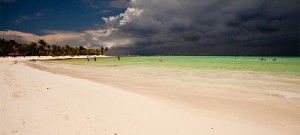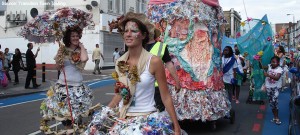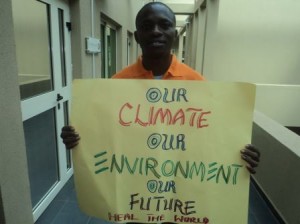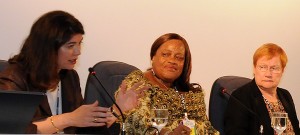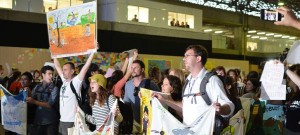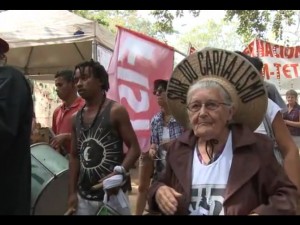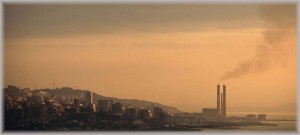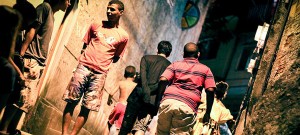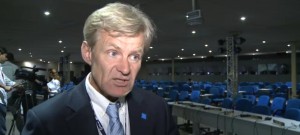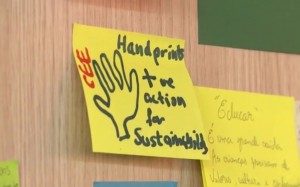Land
Podcast: How can countries like Malawi benefit from the UNFCCC’s Clean Development Mechanism?
In the seventeenth in the series of UNFCCC CDM Radio Club reports, Charles Chikapa explores the benefits of the CDM for Malawi.
Youth Profile #2: How PIDES are working on practical solutions to climate change in Mexico
Christopher Córdova, International Director of PIDES International based in Mexico talks to RTCC about the work they are doing combining theory and practical measures in combating climate change.
After Rio+20 stalemate and impasse at UNFCCC talks is it time to focus locally on climate action?
With people turning their back on the global, what examples can we find at the local level to guide not only our actions but also the international debates as they continue?
Transition 2:0 – A story of community and climate resilience in a time of global inaction
RTCC takes a look at the story of the Transition Movement told through their latest film Transition 2:0.
Youth Profile #1: How Nigerian Climate Coalition are building green bridges ahead of COP18
Olumide Idowu, from the Nigerian Youth Climate Coalition talk to RTCC about the work they do, the reasons why they do it and why working in Nigeria is not always easy.
Ten things you can do with solar power
Solar energy is not just for topping up tans and powering calculators, RTCC has put together ten alternative uses for solar power, some old, some new, some fun, some life changing.
Podcast: How a solar water heating project is changing lives in South Africa’s Cosmos City
In the sixteenth in the series of UNFCCC CDM Radio Club reports Zeenat Abdool takes a look at a solar water heating project implemented by the city of Johannesburg.
Yogic farming: Hippy culture or the answer to global famine and land degradation?
Yogic farming is said to increase yields and boost the quality of the crops being grown across India – could it be an effective solution to land degradation and rising demand for food?
PODCAST: Are women the key to moving climate change debate forward?
An increased role for women in climate and sustainable development talks is vital a panel of world leaders tell RTCC.
South Australia to get “hotter and drier” from climate change, warns report
New report warns urgent adaptation is needed for local communities in South Australia to deal with hotter and drier conditions from climate change.
PODCAST: Restoring human dignity in South Africa with the CDM
In the fifteenth in the series of UNFCCC CDM Radio Club reports RTCC is hosting, Zeenat Abdool, a radio journalist from South Africa visits the community outside Durban to see how much a solar heater project has changed their lives.
Rio+20: What next for civil society following Earth Summit ‘failure’?
As civil society groups across the globe denounce politicians for their lack of action, is it time for a new era where the individual and the collective take on the challenge?
Hanna Thomas: Why I walked out of Rio+20 summit in despair
Hanna Thomas from Otesha Project UK explains why she joined 130 activists in walking out of the Rio+20 summit in protest at lack of action from world leaders
Rio+20 Business Focus: Including cities and local governments in international negotiations
Anke Stoffregen, from ICLEI – Local Governments for Sustainability explains how cities and local governments will be key players in a world increasingly marked by urbanisation and the need to harenss their power and engage them in policy making.
Rio+20: A day at Rio’s other summit – the People’s Conference
There’s a another conference happening in Rio de Janeiro – this one on the other side of the city and a two-hour traffic jam away from where the politicians are gathered.
Photo of the week #23 – The world’s expanding cities
This week, the challeneges posed by rapid population growth and urbanisation.
PODCAST: How does the CDM benefit sustainable development
In the fourteenth in the series of UNFCCC CDM Radio Club reports RTCC is hosting, Ugonma Cokey, from Voice of Nigeria traveled to Bonn to explore how the CDM is contributing to sustainable development.
Rio+20: The Rio de Janeiro favela setting the standard for inner-city sustainability
RTCC’s Daniel Schweimler takes a tour of the Babilonia favela in Rio de Janeiro where sustainable development is at the heart of the community’s hopes for a higher quality of living and a healthier, more prosperous future.
Rio+20: Human Rights Watch call for global deal to include dignity and respect for minorities
Leading NGO calls for more focus on human dignity at Rio summit and less on ‘macro’ measurement figures such as GDP
Rio+20: Youth frame future in dynamic wall of art at UN summit
It’s not all doom and gloom at the Rio+20 summit. The ‘vision’ wall at the centre of the conference is ensuring the voice of youth is heard at the heart of the talks
